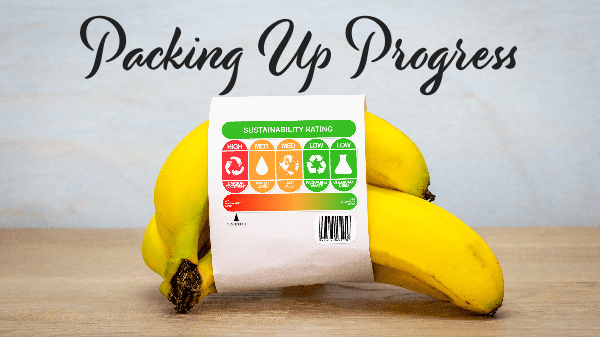Despite all the benefits to the environment and the need to fulfill regulatory requirements, businesses must always keep an eye on the bottom line.
Innovative packaging, as most of our experts noted, comes at a cost.
One way these costs can be defrayed is through consumer loyalty: over 52 percent of consumers say they are willing to pay more for products in sustainable packaging.
But customer loyalty isn’t the only way innovative packaging can bring benefits to the companies that make them part of their overall approach.
When Giró Pack introduced its GirBaggers line in 2019, the supplier experienced an increase in line speed from 25 to 28 percent, significantly cutting production costs.
“Vitesse, our dynamic and static weigher, works well with speed baggers, and this has increased line speeds by an additional 29 to 38 percent, says Marcello Ferrer, country manager for commercial and operations for Giró Pack, Inc., BB #:189880 with its U.S. headquarters in Vidalia, GA.
“When you can bag faster and more efficiently as packers, this is also an opportunity for products to be more affordable for consumers as well,” he said.
Flexibility and performance
The move away from plastics is challenging in many ways, notes Incaviglia, not only in terms of cost, but in the performance consumers expect from packaging.
“Packaging provides increased food safety, extends shelf life, and, with some packaging designs, helps reduce or slow respiration to keep product fresher for longer periods of time,” he says.
“Ultimately, developing new technology with the strength, clarity, durability, convenience, and don’t forget affordability of existing materials, will pay dividends down the line.”
Interestingly, some of the most cutting-edge packaging innovations offer reduced costs to the industry in unexpected ways, according to Victoria Lopez, marketing and brand manager for Fox Packaging BB #:145435 in McAllen, TX.
“One of the recent developments in flexible packaging is the use of nanotechnology to create thin films with enhanced properties such as barrier, strength, and transparency,” she says. “Nanotechnology can reduce the production costs of flexible packaging by using less material, energy, and waste.”
Less labor, more automation
Another significant issue is driving the need for innovation: labor.
Bob Wright, vice president of operations for grower-shipper Veg-Fresh Farms, LLC BB #:130688 in Corona, CA, sees many opportunities for packaging improvements to cut costs, especially in terms of automation.
“Improved technology has now made automation more economically viable,” he says.
“With the rise in labor costs, there have been innovations in packaging automation, which will improve food safety through less human contact and protect the product from exposure.
“These same automation improvements will lower costs and increase overall consumer value, which helps the entire supply chain.”
“Due to labor shortages and costs, the produce industry needs automated solutions for more of its processes,” says Belinda Heidebrink, product marketing lead for Bedford Industries, Inc. of Worthington, MN. “We believe new packaging options introduced to the industry will be built with automation in mind.”
She mentions several of Bedford’s recent developments, including Tag Ties and the TagTyer machine, which can operate in growing fields or packing sheds, as an example of packaging innovation driven by increased automation.
Some companies, such as Fox Packaging, are developing responses to both reduce waste and cut labor costs. One such approach is the development of flexible packaging.
“Flexible packaging be made from alternative materials, which can reduce the environmental impact of packaging disposal or increase compatibility to the recycling stream,” Lopez explains.
“It can be paired with packing automation specific to wicketed baggers, which are machines that automatically fill and close pre-made bags.
“This allows for more efficient packing,” Lopez says, “as well as reduced labor costs and waste. Fox Packaging manufactures a single- and a double-wicketed bagger which permits a packager to meet their operational goals with the support of packing equipment.”
This is an excerpt from the Applied Technology department in the July/August 2023 issue of Produce Blueprints Magazine. Click here to read the whole issue.



